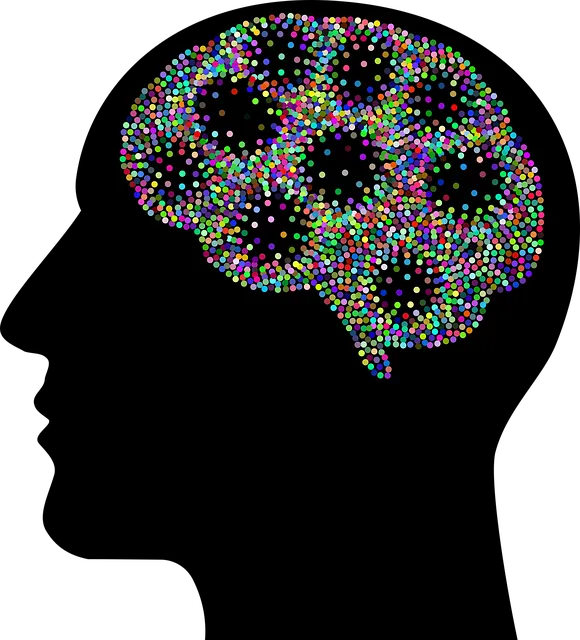Lone Tree Kaiser Permanente: Crisis Hotlines, Support, and Resilience
The 24/7 Mental Health Crisis Hotlines, like those offered by Lone Tree Kaiser Permanente behavioral…….
In the realm of healthcare, particularly within mental and behavioral health services, the concept of “Lone Tree Kaiser Permanente (KP) Behavioral Health Providers” has emerged as a innovative approach to delivering specialized care. This article aims to provide an in-depth exploration of this unique model, its components, impact, and potential. We will delve into various aspects, from its historical foundations to future prospects, offering valuable insights for healthcare professionals, policymakers, and individuals seeking understanding in this evolving field.
Lone Tree KP Behavioral Health Providers refer to a specialized network of mental health professionals within the Kaiser Permanente healthcare system, designed to offer comprehensive behavioral health services. This model incorporates various disciplines, including psychiatry, psychology, social work, and nurse practitioners, who collaborate to provide holistic care. The key components include:
The concept of Lone Tree KP Behavioral Health Providers has its roots in the pioneering work of Kaiser Permanente, a healthcare organization known for its comprehensive and integrated approach. Over time, recognizing the growing importance of behavioral health, KP began to enhance its mental health services. This evolution led to the development of specialized networks, with “Lone Tree” representing a specific model focusing on accessible, high-quality care.
This initiative is significant as it addresses the critical gap in access to behavioral health services, especially in areas where specialized resources are limited. By integrating these services into primary healthcare settings, KP aims to normalize conversations around mental health and reduce the stigma associated with seeking treatment.
The Lone Tree model has garnered international attention for its innovative approach to behavioral healthcare. Many countries are adopting similar strategies to improve access and quality of care. For instance:
The impact of Lone Tree-like models varies across regions due to differing healthcare infrastructures and cultural attitudes towards mental health:
The market for behavioral health services is experiencing significant growth, driven by rising mental health awareness and increasing demand for specialized care. This trend presents both opportunities and challenges:
Investing in behavioral health infrastructure is becoming a priority for healthcare organizations and investors:
Lone Tree KP Behavioral Health Providers contribute to economic systems in several ways:
Technology plays a pivotal role in enhancing the capabilities of Lone Tree KP Behavioral Health Providers:
Emerging technologies hold further promise for Lone Tree providers:
The development and operation of Lone Tree KP Behavioral Health Providers are guided by a web of policies and regulations:
Policy landscapes significantly impact the trajectory of Lone Tree models:
Despite its numerous benefits, the Lone Tree model faces several challenges:
Addressing these challenges requires a multi-faceted approach:
The following case studies highlight successful implementations of Lone Tree KP Behavioral Health Providers:
Case Study 1: Urban Community Integration
Location: San Francisco, CA.
Challenge: Improve access to mental health services in a densely populated but underserved urban area.
Solution: KP partnered with local community organizations and established a network of primary care clinics offering integrated behavioral health services.
Outcome: Wait times for mental health appointments decreased by 40%, patient satisfaction scores increased, and there was a notable reduction in emergency room visits related to mental health crises.
Case Study 2: Rural Telehealth Expansion
Location: Montana’s rural counties.
Challenge: Provide specialized behavioral health care to remote communities with limited access to specialists.
Solution: KP implemented a telehealth program, connecting patients with mental health professionals through video conferencing and mobile apps.
Outcome: Patients reported improved access to care, with 85% of participants indicating they would not have sought treatment without telehealth options.
Case Study 3: AI-Assisted Diagnosis and Treatment
Location: Various KP locations nationwide.
Initiative: Introduction of an AI tool for mental health screening and treatment planning.
Outcome: The AI system assisted providers in making accurate diagnoses, leading to more personalized treatment plans. Patient retention rates improved, as the technology enhanced patient engagement through self-monitoring tools.
The future of Lone Tree KP Behavioral Health Providers holds immense potential:
Staying ahead of the curve requires an eye on emerging trends:
To capitalize on these prospects, KP and similar organizations should:
Lone Tree Kaiser Permanente Behavioral Health Providers represent a significant advancement in the delivery of mental and behavioral health services. By integrating specialized care into primary healthcare settings, this model addresses critical access issues and promotes holistic well-being. The global impact and growing interest in similar initiatives underscore its potential to revolutionize mental healthcare.
As technology evolves, policy landscapes shift, and community needs change, Lone Tree providers must adapt and innovate. By embracing emerging trends, addressing challenges head-on, and staying true to their core values of accessibility and quality, these networks can continue to foster healthier communities worldwide.
Q: How does the Lone Tree model differ from traditional behavioral health clinics?
A: Traditional clinics often focus on individual therapy sessions, whereas the Lone Tree approach emphasizes a team-based, integrated care model that includes primary care providers and specialists working together. This collaborative approach ensures a more comprehensive understanding of the patient’s needs.
Q: What are the potential benefits for patients in a Lone Tree KP network?
A: Patients can expect improved access to specialized mental health services, coordinated care across different disciplines, personalized treatment plans, and increased engagement through technology-enabled options.
Q: How do policy changes impact the development of Lone Tree providers?
A: Favorable policies regarding reimbursement rates, licensing, and regulatory support encourage healthcare organizations to invest in these networks. Stringent regulations can also present challenges, affecting staffing, funding, and service delivery.
Q: Can the Lone Tree model be successfully implemented in rural areas?
A: Absolutely. Telehealth options and innovative use of technology enable effective delivery of behavioral health services to remote communities. Training programs tailored to rural settings can attract and retain healthcare professionals.
Q: What role does technology play in enhancing Lone Tree KP Behavioral Health Providers?
A: Technology, from telehealth to AI-assisted diagnostics, improves access, enhances patient engagement, and enables more personalized care. It also facilitates efficient data sharing among providers, leading to better coordination.

The 24/7 Mental Health Crisis Hotlines, like those offered by Lone Tree Kaiser Permanente behavioral…….

Lone Tree Kaiser Permanente behavioral health providers are experts in teaching individuals how to n…….